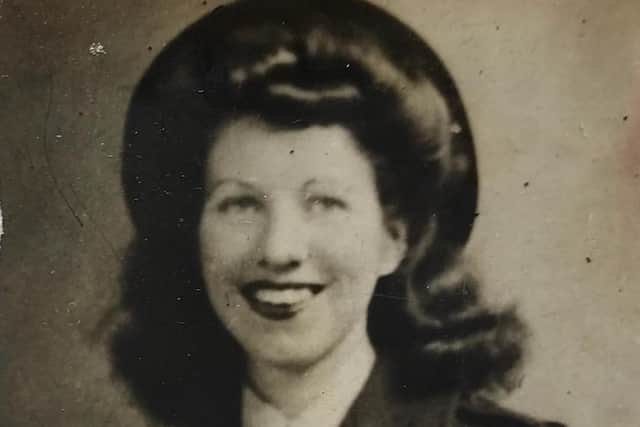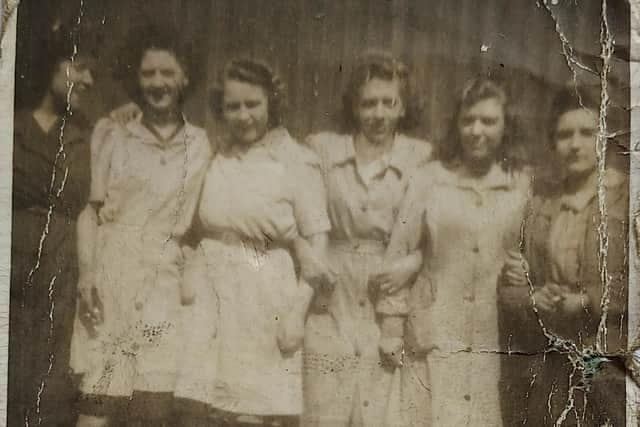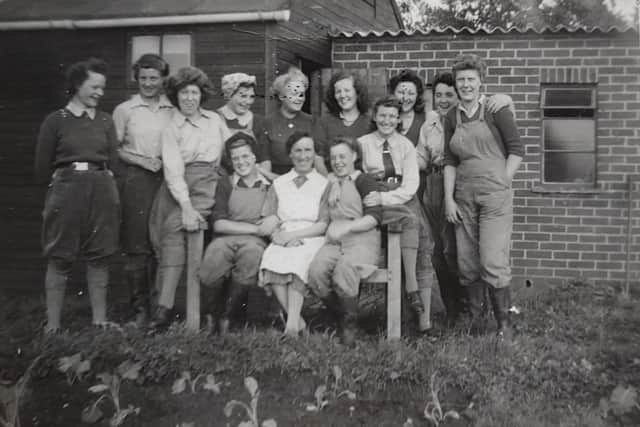Land Army memory day will revisit Lily’s Doncaster war years
and live on Freeview channel 276
Few women worked harder on the home front in World War Two than Lily Brandreth.
Conisborough-born, she threw herself into manual work at a local sawmill as the war broke out in 1939. As the conflict dragged on, she switched to heavy industry and began riveting airplane bodies together at Carr Hill in Balby.
Advertisement
Hide AdAdvertisement
Hide AdShe survived a German attack when a plane attempted to machine gun her while she was working at Biggs in Sheffield, making cutlery, and then signed up for two years in the Women’s Land Army, where she was based in Lowestoft in Suffolk. She moved to Edlington in 1952 when her husband, Jesse Thompson, began work at Yorkshire Main Colliery.


Women’s Land Army Day is set to take place on Saturday, July 22, from 10:30am until 4pm at the Helping Hands Community Centre in Edlington.
Organisers are hoping local people will share their own memories and mementos of the women who served from our area.
The event also includes 1940s entertainment, kids' events, an art show, a display by Edlington History Group, refreshments, and more.
Advertisement
Hide AdAdvertisement
Hide AdLily Brandreth’s daughter now chairs the Edlington History Group, and she’s very keen to record stories from the area.


Janet Devanny said: “My mum told me some amazing stories of the bravery of the girls she was with in the Women’s Land Army, but I know she only scratched the surface. We’re keen to hear from anyone whose relatives might have served or who have memories."
The event is part of the WEA Women on the Land Project, which is supported by a grant from the National Lottery Heritage Fund.
It is researching, recording, and documenting how those who joined the Women’s Land Army and Lumber Jills (Timber Corps) helped support the agricultural landscapes of the country during WW2 (and WW1) and, after the war, grow food to support the reconstruction of Europe.
Advertisement
Hide AdAdvertisement
Hide AdFormed in 1939 with a drive from Lady Denman, a leading proponent of women’s rights in the early 20th century and the first Chairman of the Women’s Institutes, the Women’s Land Army helped to feed the nation and much more. The women were stationed on farms and purpose-built hostels before finally disbanding in November 1950.


During the First World War, it took four years before the government recognised they desperately needed mobile female farm workers.
At the start of the Second World War, the government knew how crucial women would be to maintaining the country’s food supplies.
Scores of thousands of male farm workers left for the war front as the war progressed; scores of thousands of women stepped into their shoes.
Advertisement
Hide AdAdvertisement
Hide AdThe Doncaster event lasts from 10.30am until 4pm and is being held at The Helping Hands Community Centre is situated on Edlington Lane, Edlington, Doncaster DN12 1PL.
Further information about the event from Richard Godley on 07854 646742.